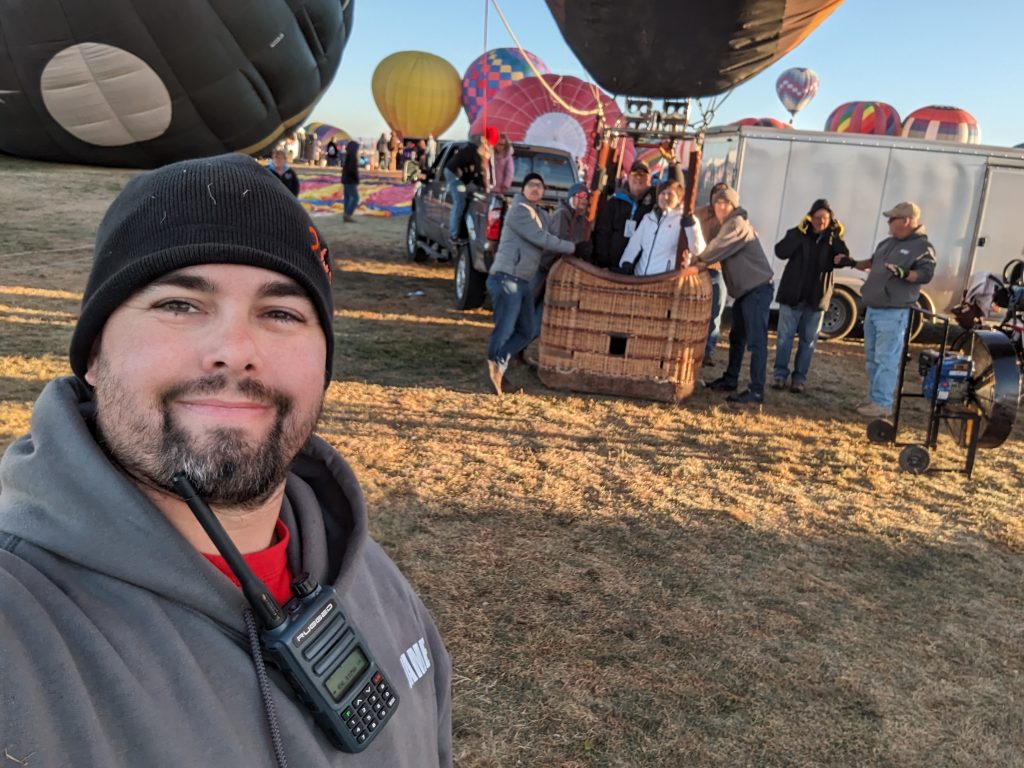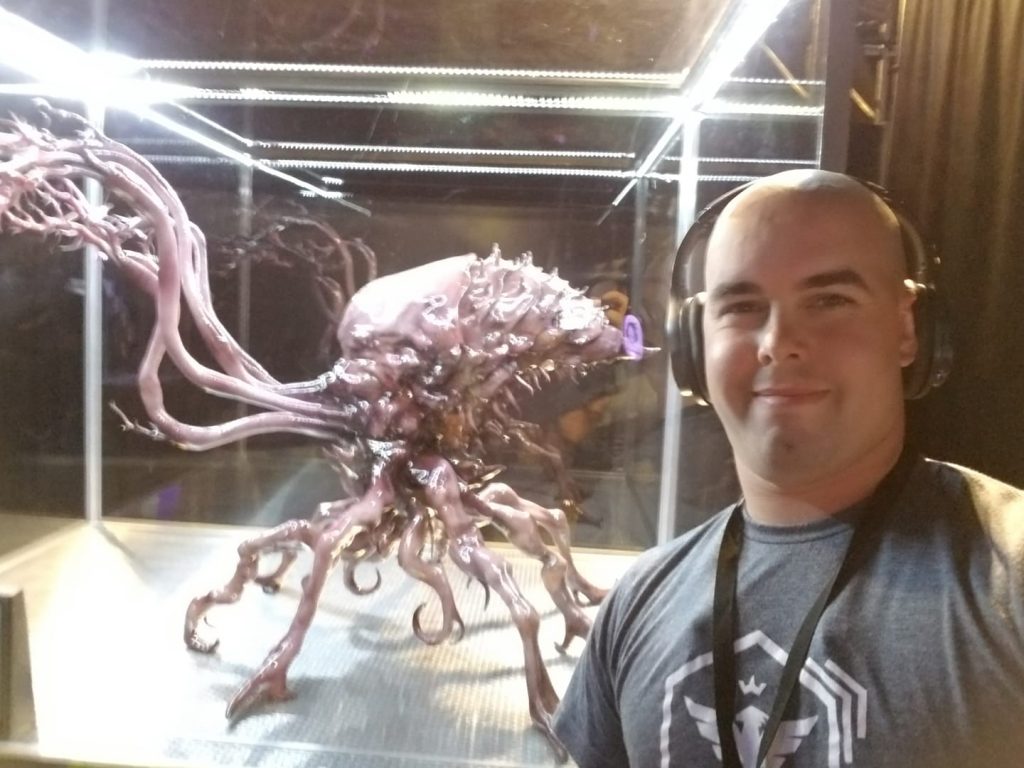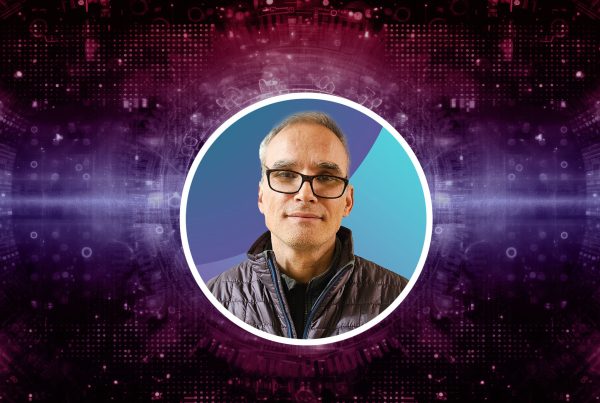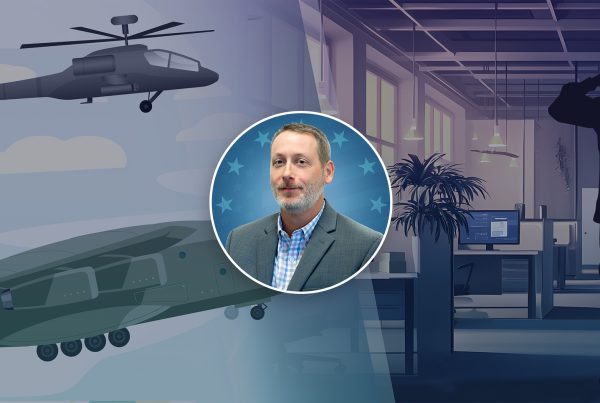Listen to article:
In his four years at our national lab location in Albuquerque, New Mexico, JT Ansell has kicked down a few doors. He’s been a division trainer, an IT service manager, a field support team manager, and now a high-performance computing (HPC) and server operations manager.
JT came to the national lab after 12 years in the U.S. Marines. He’d amassed a lot of IT, training, and management experience in the service, but didn’t foresee his rapid ascent through the ECS ranks.
“I grew up in Flint, Michigan,” he says, “and got my high school diploma just so I could join the Marines. I had no idea it would lead to where I am in my civilian work today.”
Today, JT oversees the HPC infrastructure that provides the Department of Energy (DOE) with the advanced computing power it needs to, among other things, model what-if scenarios related to nuclear deterrence.

JT Ansell
High-Performance Computing and Server Operations Manager
From the Marines to Civilian Work
In the Marines, JT stacked up years of network administration and other technical experience. But it was JT’s last Marine role, training chief, that positioned him particularly well for his first position after his Marine Corps career: division trainer.
As a division trainer, JT worked with fellow trainers and Human Resources staff to on-board new employees, identify skill and knowledge gaps, and design and deliver training programs. He has since held three ECS management positions of progressively greater responsibility but has never lost his focus on helping others train and develop.
“Using my experience to mentor people in their careers is what drives me,” he says. “I’ll guide them around which courses to take, which certifications to get, or around benefits, like our employee stock purchase program. Mentoring and helping others develop is a lot of fun.”
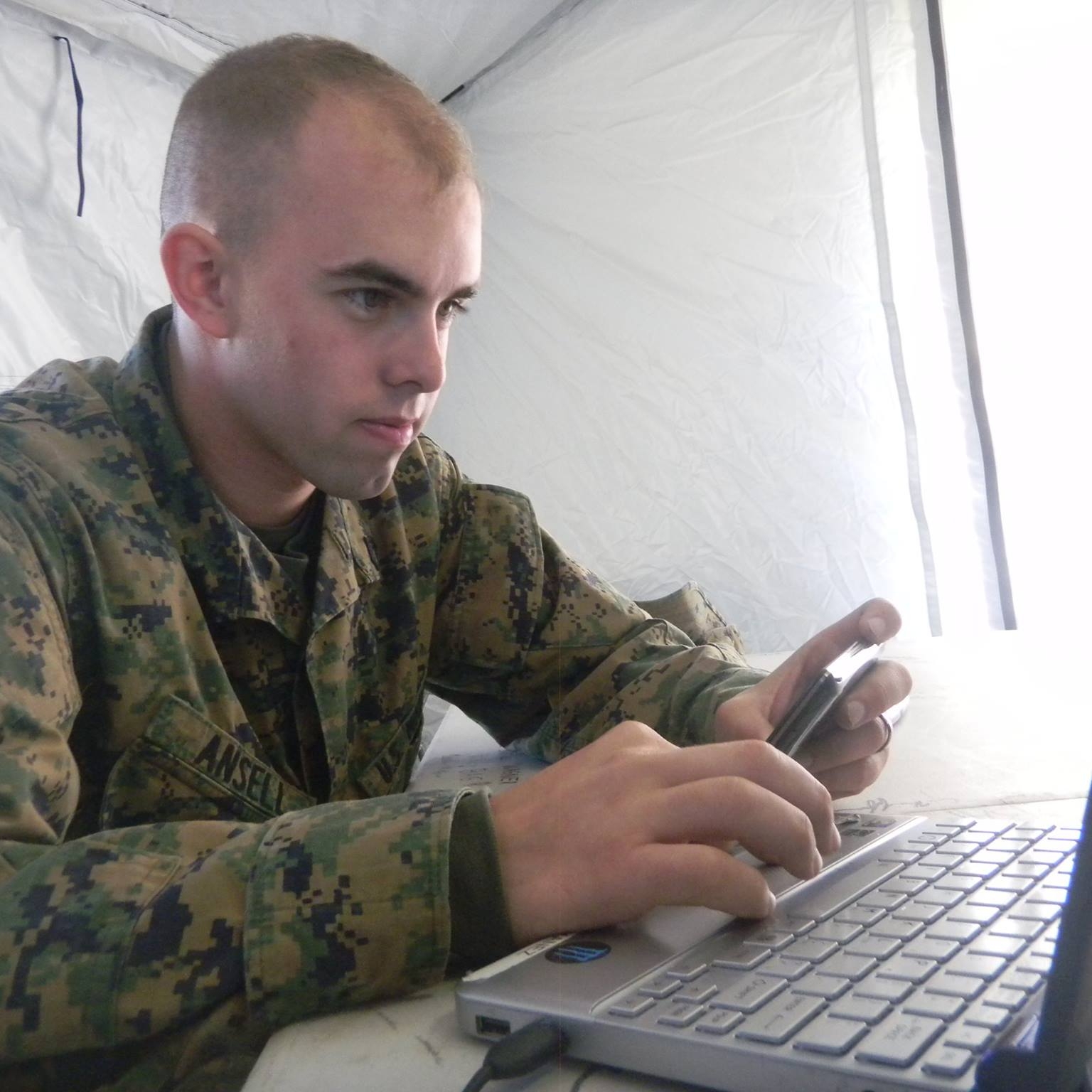
Innovating and Meeting Challenges
“JT’s success is at least partly due to his innovative and sometimes unique approach to challenges,” says ECS’ Director of Energy Stacia Schurott. “In his first managerial role, he oversaw a team that created a new form of IT service delivery for the Albuquerque lab: a walk-up service called the ‘Swift IT Bar.’”
Like the Apple Genius Bar, the Swift IT Bar enables any lab employee to bring their laptop, phone, or any other piece of IT equipment for on-the-spot service — no phone calls or service tickets required. The Swift IT Bar has been so effective in Albuquerque that the service team at our California location has since created one.
These days, the current IT job market and talent war are presenting JT with his biggest work challenge: keeping his high-performance computing team staffed with the right people.
“We support Linux applications, which are not as popular as Windows or Mac apps,” he explains. “Finding people who know Linux in depth and are also willing and able to get government clearance is tough.” To meet this challenge, JT is careful to always invest adequate time and attention in reviewing resumes.
“It’s hard to write about yourself and talk yourself up, which affects how a resume comes across to a hiring manager,” says JT. “I take a lot of time to look at each individual and assess them, and I’ll interview certain candidates who don’t, at first, seem to qualify on paper. Nine times out of ten, I discover that they do qualify. They just don’t know how to put their experience into words on paper. This is all part of helping young people grow; that’s my mantra.”
Make Career Growth Your Priority
JT has advice for anyone seeking an ECS role at the national lab or any other role requiring government clearance: don’t be afraid of it.
“If you like the sound of the position, apply for it,” says JT. “Don’t be scared off by the clearance requirement. Generally, applicants are too concerned about the clearance process, which is almost always less scary and laborious than they think.”
His more general advice, for those just getting started or young IT pros who want to kick down a door or two, is to make career growth a priority.
“You need to go where the opportunities are,” he says, “where you’ll have the chance to advance on your own merits. Then, once you’re in the door, make sure you shine. If you choose the right employer, there’s nothing holding you back but yourself.”





